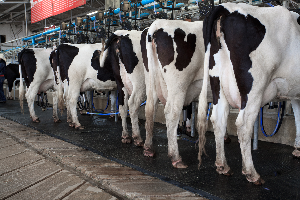SER: Current livestock farming unsustainable. Intervention essential
The SER (Social and Economic Council of the Netherlands) has concluded in its report on accelerating sustainable farming that accelerated action against current livestock farming is essential. The government will need to play a strong director’s role and only the “vanguard” of sustainable livestock farmers – about 30 % of all Dutch farmers – should receive financial support. The remaining farmers should be enabled to stop farming. The Party for the Animals agrees with the SER’s recommendations, as well as the conclusion that the days of self-regulation and good intentions are over. Chairman Marianne Thieme seeks to hold a debate with the State Secretary on these urgent recommendations.

According to the SER, providing specific enforcement and support to the vanguard of sustainable farmers, who give the highest priority to animal welfare, public health and innovation among other things, is essential. As well as the Party for the Animals, the SER believes that herein lies an important director’s role for the government to finally take up the task of sustainable livestock farming.
“The SER is right in saying that the days of non-commitment and empty promises are over,” Marianne Thieme says in response to the recommendations of the SER. “Livestock farming is unsustainable, for farmers as well as animals, environment and public health. Self-regulation has not benefited farming in any way, and the government has taken no responsibility. Many government advisory bodies have sounded the alarm: the Netherlands Environmental Assessment Agency, the Scientific Council for Government Policy and now the SER. It is time to start listening.”
The Party for the Animals wants the government to invest only in sustainable, organic farming. Cattle numbers should be drastically reduced. At present, over 37 percent of a pig holding income is dependent on subsidies, as well as 60 percent of a dairy farm income and more than 92 percent of a veal calf holding income.